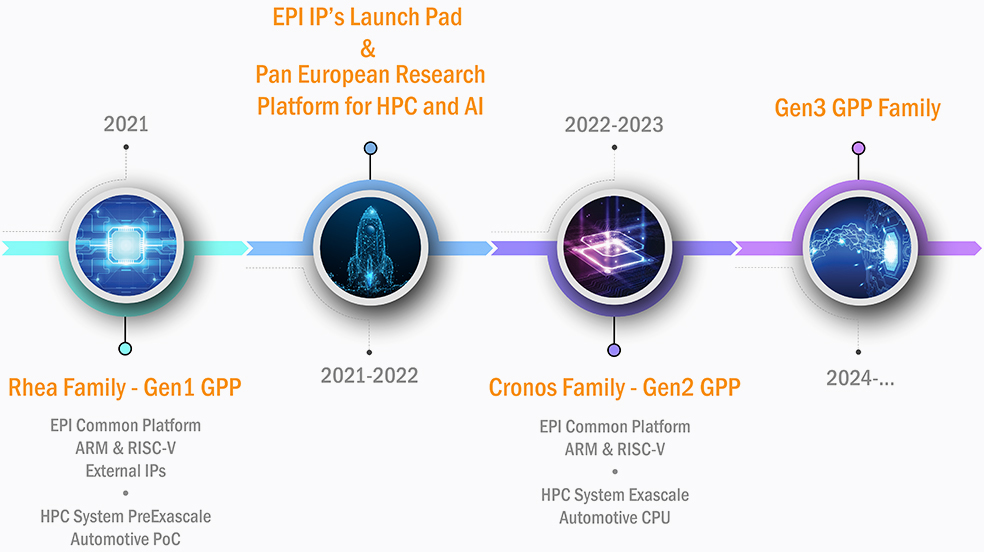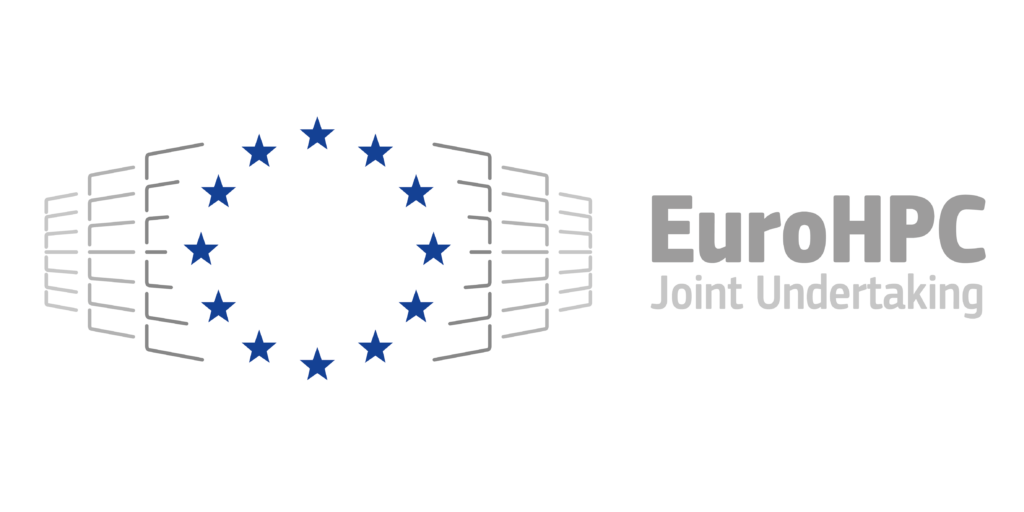The Initiative will gather experts to discuss exascale future on March 16-17, in Paris
The European Processor Initiative is announcing the first EPI Forum to take place in Paris, France, on March 16-17, 2020.
EPI is going full speed ahead to meet the goals of our mission – European independence in HPC technologies and a favorable global position in the race towards exascale.
In a two-day event, the consortium will host experts from HPC ecosystem, engineers, researchers and global players in the field, to attend sessions, round tables and keynote speeches from prominent executives and experts.
Hosted near the beautiful Champs-Élysées, at the Elysées Biarritz venue, the first day of the event will tackle interesting topics such as architecture choice, the rise of EPI Common Platform as an EU central computing unit, an overview of processing cores, and the introduction of SiPearl, EPI’s industrial hand.
The forum will also provide the attendees with inputs and worldwide views from technology providers and intriguing discussion regarding bringing new EU HPC processor to market and associated challenges. Prominent keynotes include experts such as Brent Gorda, senior director of HPC, Infrastructure Line of Business Arm, Steve Scott, SVP, Senior Fellow & CTO of the HPC & AI Business Unit at HPE, Paul de Bot, Senior Director, TSMC Europe B.V., Mitsuhisa Sato, Deputy Director, RIKEN Center for Computational Science, and Robert Hoekstra, PhD, Manager, Scalable Architectures, Computing Research Center, Sandia National Laboratories.
The second day of the EPI Forum will feature a keynote speech from RISC-V Foundation CEO, Calista Redmond, followed by discussions on automotive and edge HPC, EPI software stack, programming models, use of accelerator cores and exascale applications.
“EPI project is strongly supported by the European Commission and we are proud to serve the European ambition toward sovereignty. As sovereignty is becoming more and more important, EPI is going to play a central role in the European HPC landscape. Initially, with the design of the RHEA processor, on next-generation Arm® Neoverse™ architecture, we are going to equip the European exascale supercomputer. In parallel, as part of our long-term strategy, we are starting to build foundations for our future European IP toolbox based on a variety of IP solutions including RISC-V, which will target custom accelerators and microprocessors. Our ambitious vision should begin to show concrete results with first-generation processors by SiPearl in the field by 2022. The first EPI Forum, much like the project itself with its strategy of supplying products in the short term and achieving EU sovereignty in the long term, will allow attendees to become acquainted with how those short- and long-term ambitions are tightly articulated,” stated Jean-Marc Denis, EPI Chairman of the Board.
“There is demand for the type of performance and innovation that Arm Neoverse-based processors deliver, and this is evident in the growth of the Arm HPC ecosystem,” said Chris Bergey, SVP and GM, Infrastructure Line of Business, Arm. “Our collaboration with the EPI and SiPearl is strategically important to our goals in HPC, and Arm supports the EU on its road toward greater processor independence and exascale deployments.”
“As the European number one in High-Performance Computing, Atos is fully supportive of the EuroHPC Joint Undertaking’s ambitious strategy to boost European technological self-reliance. Atos is proud to lead the effort to design a family of European processors for HPC and for other emerging markets, in our role of coordinator of the EPI project. Atos has a long history of commitment to the development of the Arm ecosystem for HPC, particularly through our role in the pioneering Mont-Blanc projects. With EPI, we are taking this ambition to a different scale, and this is good news for the robustness of the European industry,” said Arnaud Bertrand, Senior Vice President, Global Head of BDS Strategy, Innovation and R&D at Atos.
“HPE has been a strong supporter of the Arm ecosystem with both our Apollo and Cray systems and software for HPC and AI and we are excited to partner with SiPearl and the EPI consortium,” said Peter Ungaro, senior vice president and general manager, High-Performance Computing and Mission Critical Solutions, HPE. “As the leader of the global hybrid IT and HPC markets, HPE is uniquely positioned to leverage and distribute SiPearl processors on future systems to customers around the world.”
“The future of computing is dramatically changing, driven by the digitalization of many industries as compute workloads change with the arrival of big data,” said Ravi Subramanian, senior vice-president at Mentor, a Siemens Business. “The European Processor Initiative is the most significant pan-European initiative in computing over the past two decades. Mentor is excited to participate in and contribute to this initiative by bringing key experts together in Paris for the first EPI Forum to help chart the future of the entire EPI ecosystem.”
“As a key partner to the European Processor Initiative, we are proud that our solutions contribute toward the creation of state-of-the-art high-performance computing processor technologies designed in Europe, “ said Luc Elman, VP Customer Excellence Europe at Synopsys.”
“GENCI as a French actor of the HPC-driven and AI-driven simulation activities in science is very proud to participate and support the EPI initiative which will achieve a major contribution to the European sovereign digital revolution supported by co-designed exascale systems funded by EuroHPC,” said Philippe Lavocat, President and CEO of GENCI.
Event details and registration is available at https://www.european-processor-initiative.eu/epi-forum/.
The European Processor Initiative (EPI), crucial element of the European exascale strategy, delivers its first architectural design to the European Commission and welcomes new partners
Almost six months in, the project that kicked off last December has already delivered its first architectural designs to the European Commission, thus marking initial milestones successfully executed. The project that will be the cornerstone of the EU’s strategic plans in HPC initially brought together 23 partners from 10 European countries, but has now welcomed three more strong additions to its EPI family.
EPI consortium aims to bring a low-power microprocessor to the market and ensure that the key competences for high-end chip design remain in Europe. The European Union’s Horizon 2020 program funds this project with a special Framework Partnership Agreement. The initial stage is a three-year Specific Grant Agreement, which lasts until November 2021.
The EPI consortium includes experts in all the relevant areas for such a major undertaking: the High-Performance Computing research community, major supercomputing centres, the computer system, automotive, and silicon industry, as well as the potential scientific and industrial users. Through a co-design approach, EPI will design and develop the first European HPC System for the HPC and automotive markets through several major streams of operation:
- HPC general purpose processor
- Accelerator
- Automotive platform
The Initiative is part of a broader strategy implemented by the European Union via its legal and funding entity – the EuroHPC Joint Undertaking (JU). The JU will enable pooling of the Union’s and national resources on HPC to acquire, build, and deploy in Europe the most powerful supercomputers worldwide.
EPI is one of the cornerstones of this EU HPC strategic plan. Drawing on the expertise of the partners in the consortium, EPI aims to bring a low-power microprocessor to market. It will ensure that the key competence of high-end chip and system design remains in Europe, a critical requirement for many application areas. Thanks to such new European-developed technologies, European researchers from academia and industry will be able to access HPC systems at exceptional levels of energy-efficient performance. As recognized by high-level EU officials, EPI will contribute to Europe’s scientific leadership, industrial competitiveness, engineering skills and know-how – not to mention society as a whole.
“European Processor Initiative will deliver key technologies to the new European HPC strategic plan for an independent and innovative European high-performance computing and data ecosystem. Energy efficient high-performance families of EPI processors will include most advanced general-purpose and accelerator cores that will deliver unprecedented processing capabilities, enabling EU researchers from academia and industry to most efficiently address global challenges. The business sustainability of the initiative is supported by carefully balanced target markets, with primary focus on exascale HPC/AI and automotive markets,” said Jean-Marc Denis, EPI Chairman of the Board.
“It is a privilege to lead this consortium and enable the creation of a new big player in the field of advanced semiconductors in Europe. We have the best teams, and a huge portfolio of expertise on board from deep node submicron, co-Design, computer science, to HPC, and automotive end-products. We expect to ship from 2021 our 1st high class and high-performance solution,” said Philippe Notton, General Manager of EPI.
“Acceleration is crucial to continued performance gains while reducing power consumption in computing. In EPI, the first accelerator will begin from RISC-V technology to deliver two unique vector and artificial intelligence accelerators for HPC and AI, since future supercomputers will be mostly heterogeneous; the second accelerator, based on Kalray’s IP, will lead the path to deterministic automotive computation. Both are offering a European solution to future global converged (HPC and AI) computing needs,” said Professor Mateo Valero, Director of Barcelona Supercomputing Center.
“The combination of general-purpose processors, hardware accelerators, security modules, and further IP modules on a system-on-chip is one of the key success factors for realizing a high-performant and energy-efficient automotive computing platform for autonomous driving and connected mobility”, said Matthias Traub, manager of electric/electronic architecture at BMW Group Research.
EPI will use a holistic approach to refine the system architecture and its component specifications. All aspects of the solution, and their interactions, will be considered and tackled simultaneously, taking a co-design approach:
- hardware platform architecture and components
- system and runtime software (OS, middleware, developers kit, compilers and libraries, etc.)
- HPC end-user applications
This approach will allow the consortium to meet the following goals:
- developing low-power microprocessor technology to be tentatively included in a European pre-exascale and subsequently exascale systems
- guaranteeing that a significant part of that technology is European,
- ensuring that the application areas of the technology are not limited only to HPC, but cover other areas such as the automotive sector and the data centers. Thus, ensuring the overall economic viability of the initiative. One specific objective for the automotive sector is to develop customized processors able to meet the performance needed for autonomous cars.

EPI plans to deliver two generations of processor families, with future families to follow. The architectural design of EPI processor families will ensure that individual processors address requirements specific to a particular market segment.
Full list of participating partners can be viewed here.

